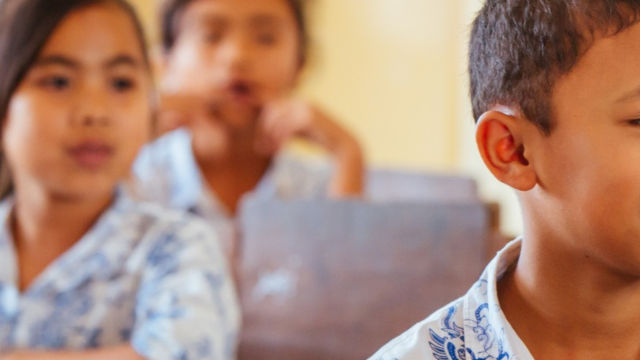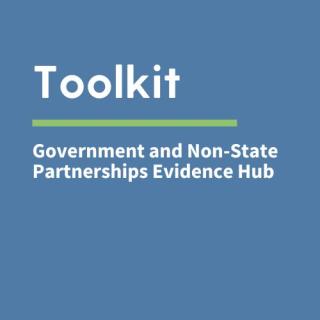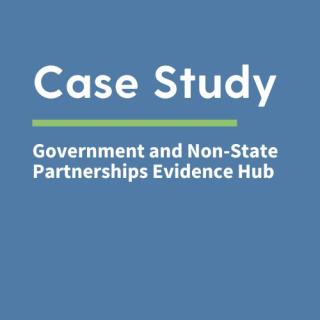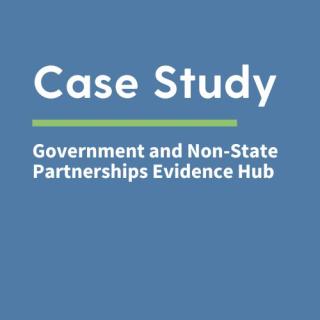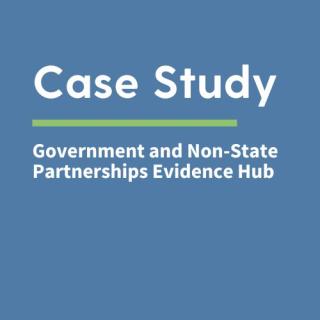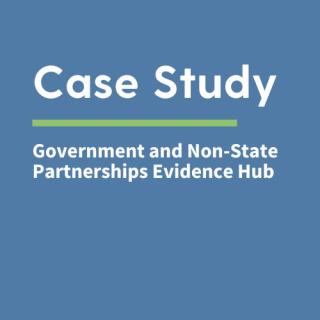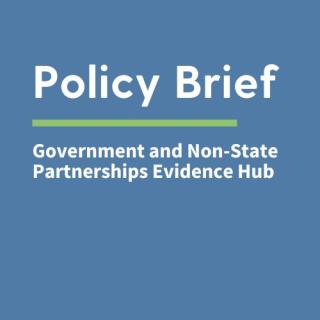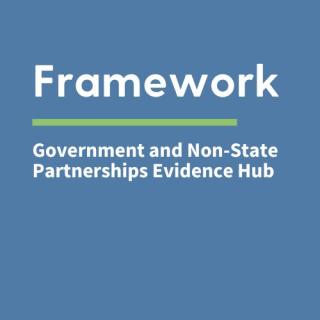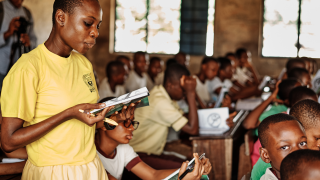
Context
The non-state sector has assumed a larger role in education delivery over the past two decades, especially in low and middle-income countries. In many countries, partnerships between government and non-state service providers are growing to improve education access and quality with government aided non-state schools operating in 171 out of 204 countries. However, there is an untapped wealth of information from government and non-state sector perspectives about new and innovative partnerships.
Currently, the available information on partnerships between government and the non-state sector focus on traditional Public-Private Partnership (PPP) models. However, several non-state providers and governments have expanded their partnerships beyond the conventional models, working together to design & implement innovative engagements focusing on strengthening public sector delivery & improving learning outcomes.
Government and Non-State Partnerships Evidence Hub
Driven by the demand from both governments and non-state actors, GSF is combining knowledge and learning from partnership arrangements to produce a set of tools and resources. These tools and resources aim to equip policymakers and non-state education providers to understand the breadth of possible partnership models, with the aim of ultimately seeding more innovative and impactful partnerships.
The toolkit offers guidance to governments to seed sustainable and long-term partnerships with the non-state sector to advance education goals.
The toolkit offers guidance to non-state actors and aims to equip them with knowledge of approaches to build better and stronger partnerships with government and enhance the scale of their impact through education systems.
PPP between Durbeen and the Sindh Education Department to enhance teacher education through Durbeen's management of the Government Elementary College of Education in Karachi.
Video on Durbeen’s efforts to transform the Government Elementary College of Education (GECE), Karachi.
Promoting Equality in African Schools (PEAS) and Department of Education Services (DES) in Uganda work collaboratively to improve leadership and management practices in public and private schools.
Video highlighting the Inspect and Improve programme and its impact in schools in Uganda.
Three-year outcomes-based financing partnership between The Government of Sierra Leone and several non-state delivery partners, funders and investors to improve foundational literacy and numeracy skills across Grades 1 to 6 public primary schools.
Successful partnership between Kenya’s Ministry of Education & USAID, led by RTI International to enhance literacy outcomes for over 7 million Kenyan children in Grades 1–3.
UWS works with the Government in a Build Operate Transfer (BOT) PPP model to ensure children have access to quality, inclusive education in remote and marginalised communities by collaborating with local partners and communities.
Collaboration between Non-State School Operating Partners and Government of Western Cape to tackle systemic inequalities inherited from apartheid, the Western Cape Collaboration Schools is an innovative model of school governance and management to improve teaching, learning, and whole school functionality.
Partnership between Government of Tamil Nadu and Madhi Foundation as Chief Management Partner for Tamil Nadu's Foundational Learning Mission. Madhi oversees key education reform projects and launches new initiatives focusing on literacy and numeracy all 38 districts in the state.
Partnership programme between Malawi Government and several -non-state providers such as Imagine Worldwide, onebillion and VSO, launched to enhance foundational literacy and numeracy in grades 1-4, to align with the vision of Malawi 2063, which focuses on FLN and digital skill development.
Simple Education Foundation (SEF) and the State Council of Education Research and Training (SCERT) in Delhi, India partnered to reform in-service teacher development and strengthen state capacity for teacher support.
This brief helps in understanding how outcomes funds can enhance education partnerships and offers insights and strategies for achieving impactful collaboration.
The framework offers a list of partnership modalities for national or local governments, looking to leverage the benefits for non-state partners.

